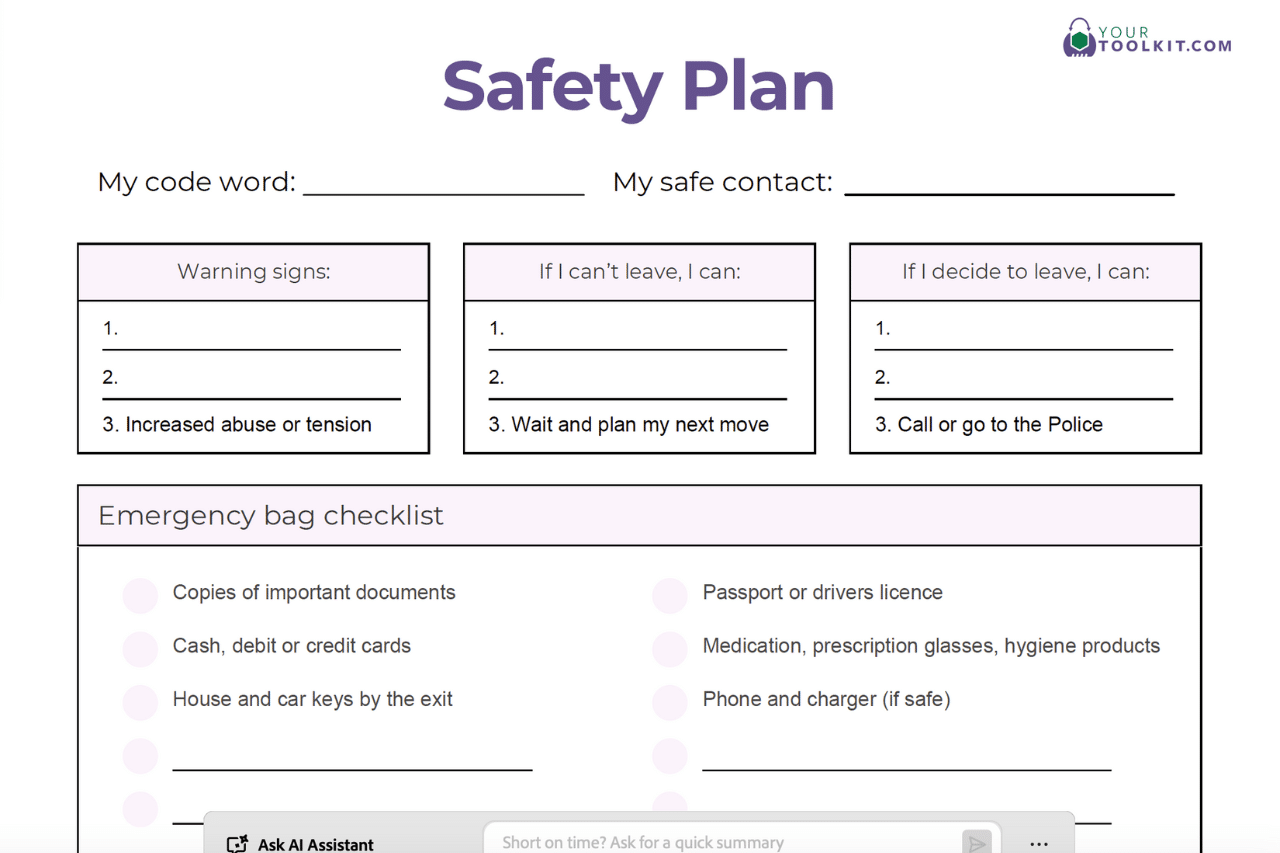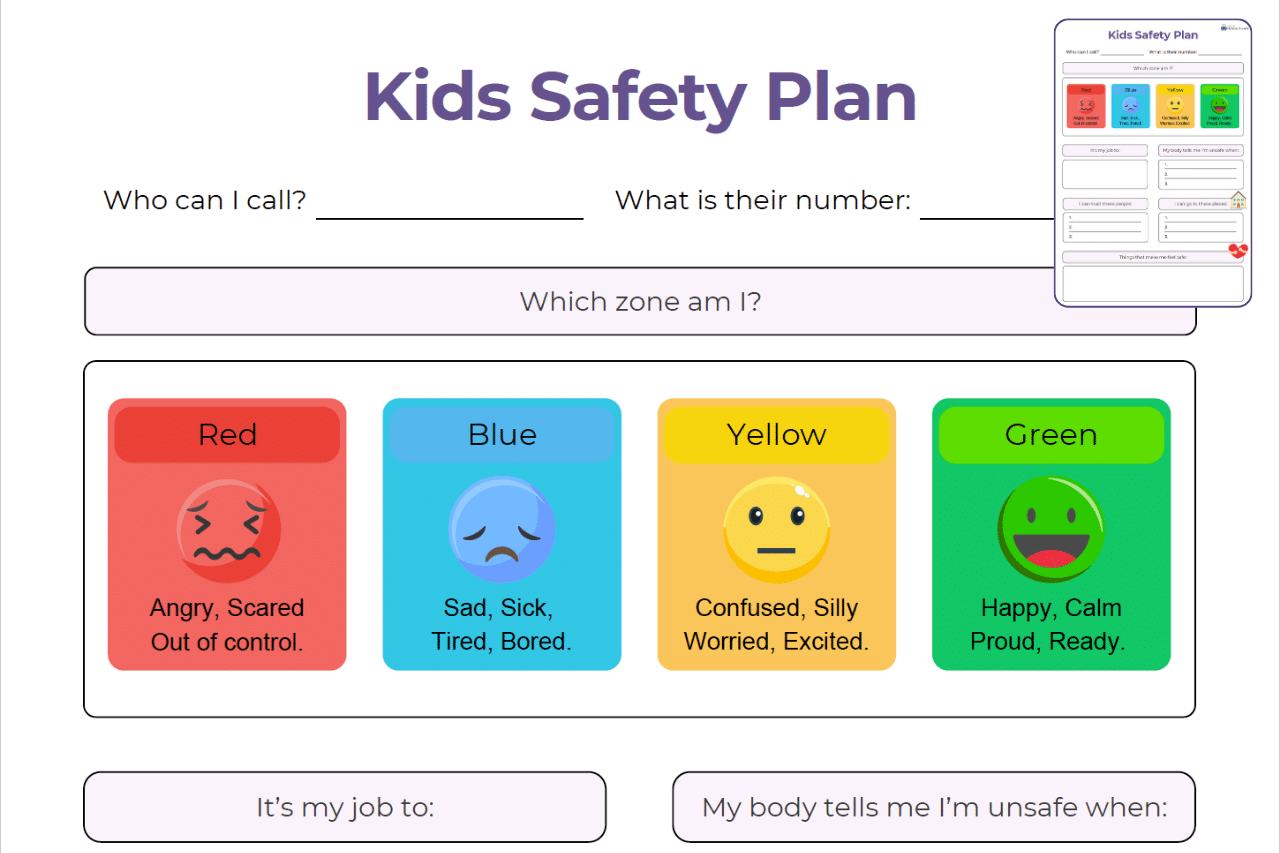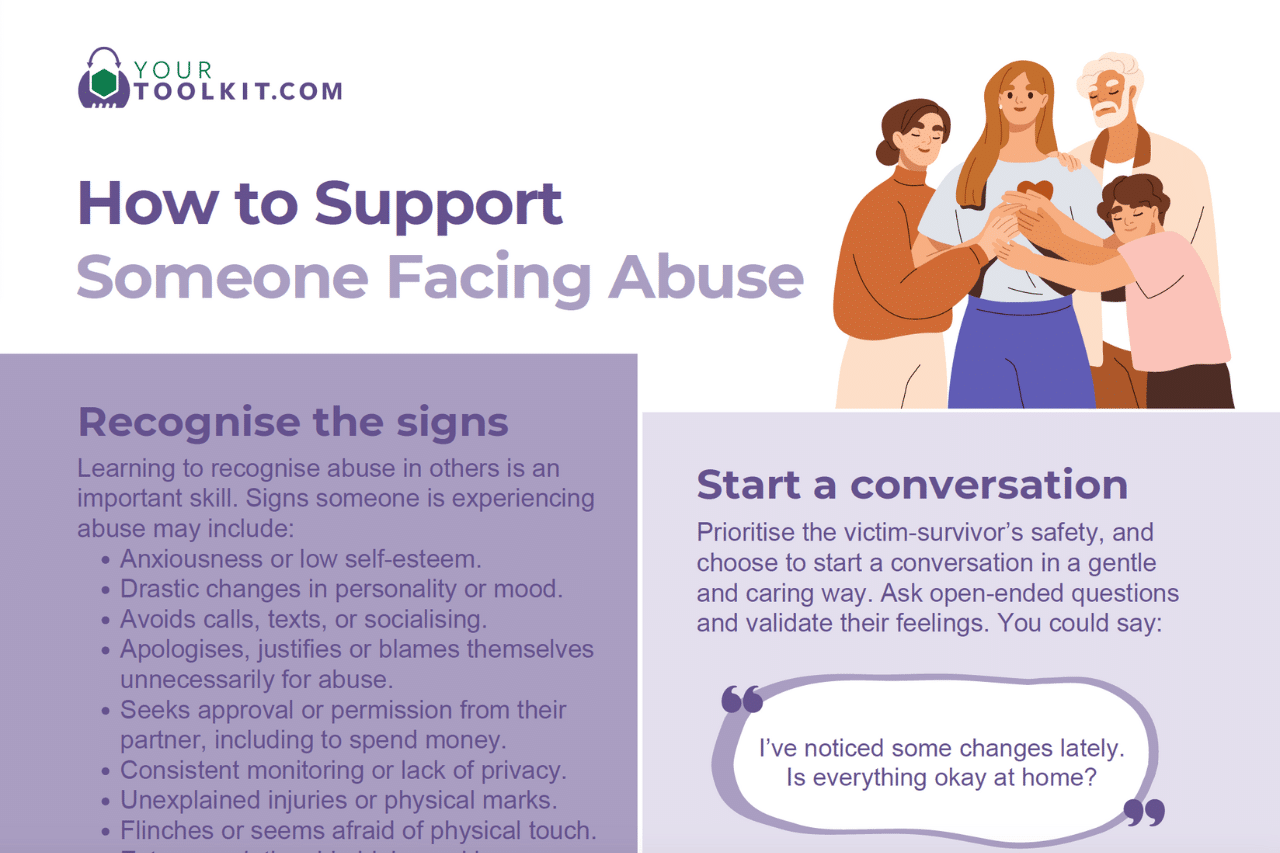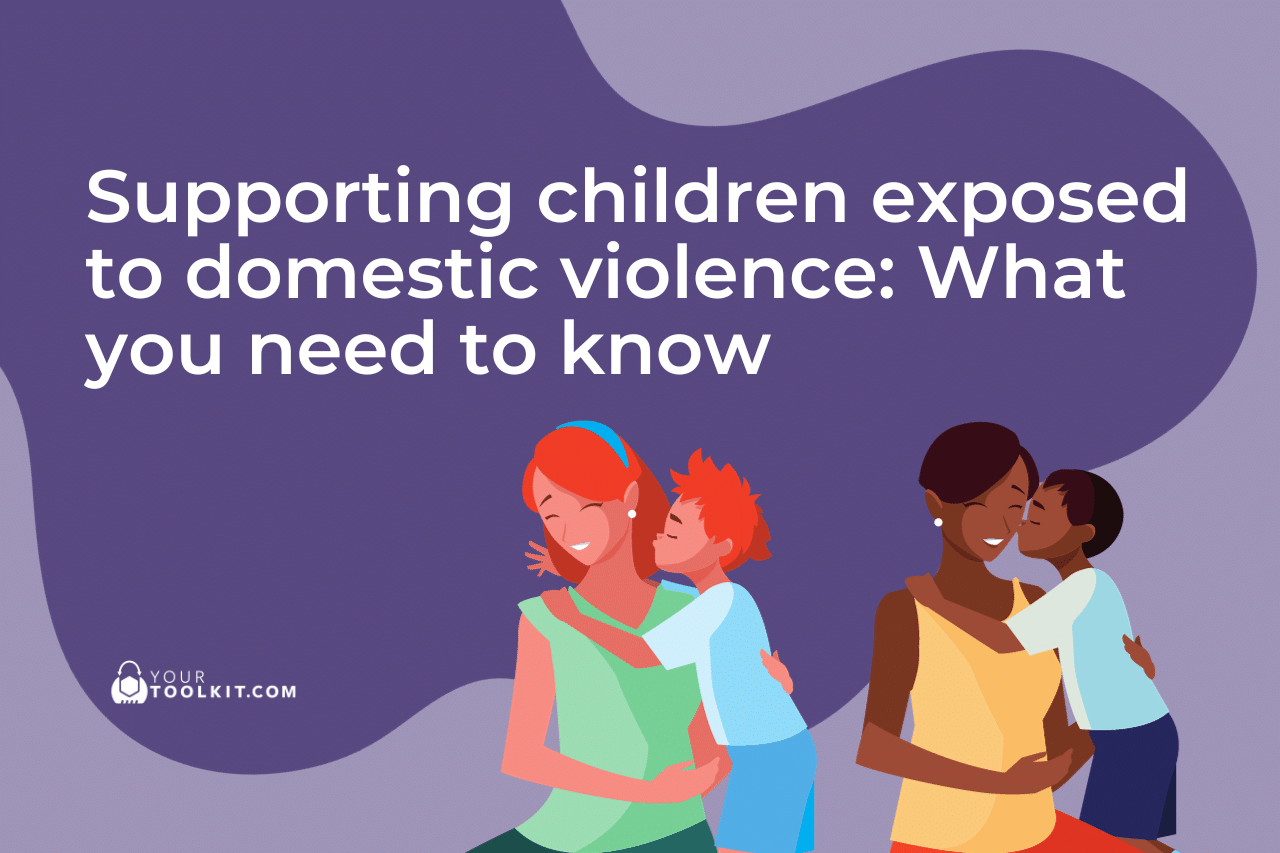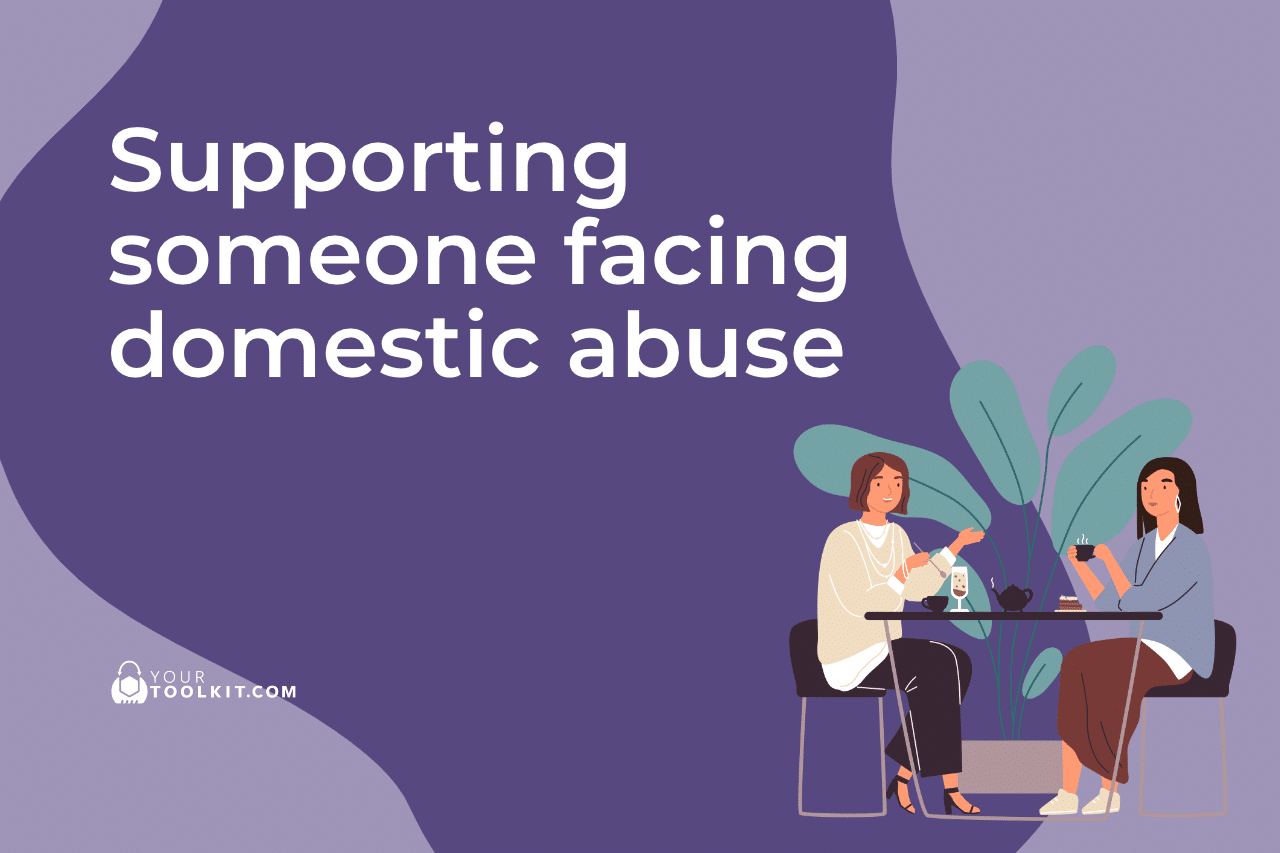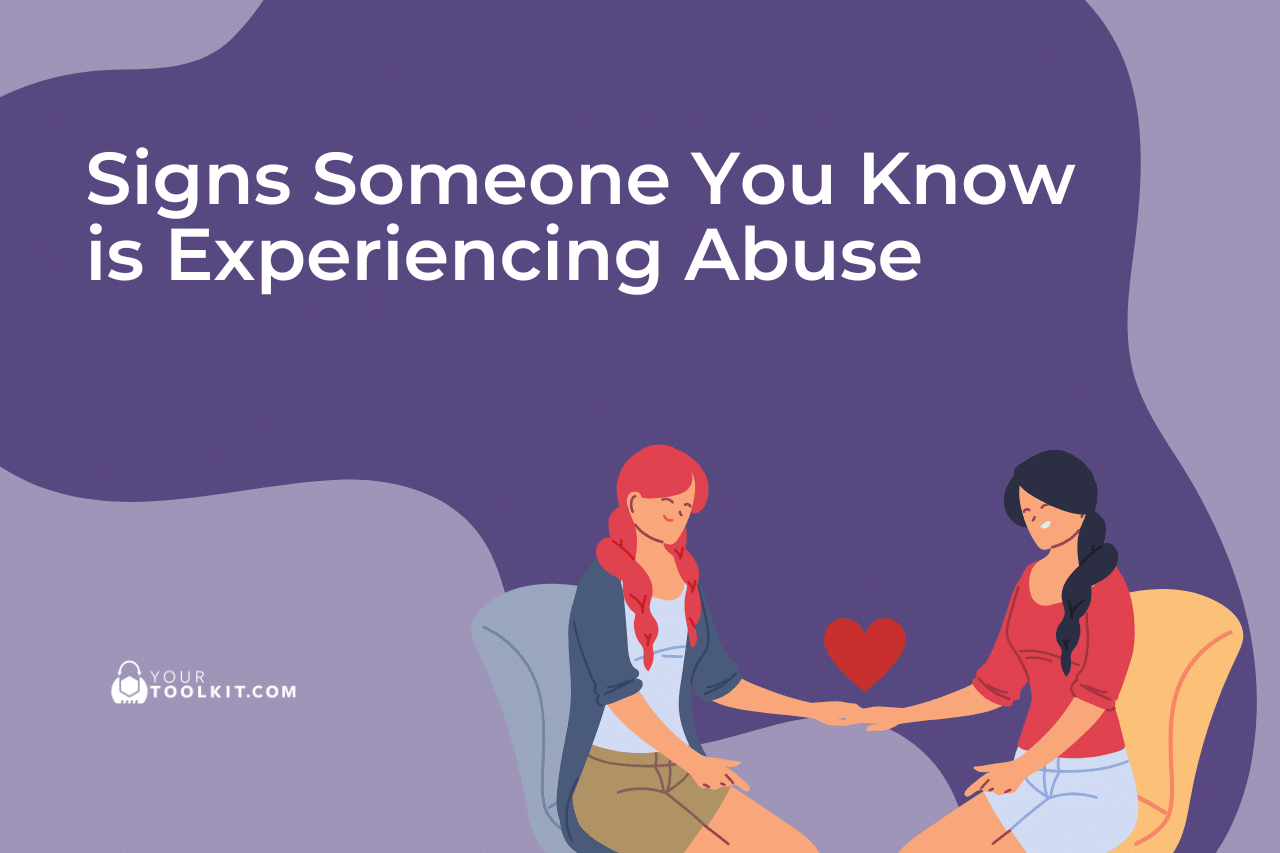If you’d like to speak with a trained counsellor, call 1800 RESPECT (1800 737 732).
How to help a victim survivor
1. Recognise the signs
Learning to recognise the signs of domestic abuse is an important first step in supporting someone. Here are some key things to look out for:
- They are hard to contact; they don’t reply to messages or leave the house.
- They seem more anxious or have less self-confidence.
- They must always tell their partner where they are or receive angry texts or calls.
- They apologise unnecessarily or blame themselves for problems in the relationship.
- They have restricted access to money or seem financially controlled by their partner.
- Unexplained injuries or physical marks with unlikely explanations.
2. Start a conversation
If you’re worried that someone you know is experiencing domestic abuse, starting a conversation can help them feel supported. Here’s how you can approach it:
- First, consider the victim-survivor’s safety. Make sure the victim-survivor is in a safe place and is not being monitored by their partner at the time you start the conversation.
- Express concern in a gentle and caring way. Say something like, “I’ve noticed some changes lately. I’m a bit worried. Is everything okay?’
- Avoid asking direct questions about abuse. Let them lead the conversation.
- Ask open-ended questions like “How have things been at home?” or “Do you feel safe?”
- Validate their feelings and remind them they deserve to be safe and happy.
- Gently remind them that abuse is never the victims’ fault.
- Respect their choices and let them know they have your support whatever they decide to do.
3. Share Yourtoolkit.com
Ask to share Yourtoolkit.com with the victim-survivor. Use your computer or mobile device to browse the site:
4. Create a safety plan together
A safety plan is important to discuss so the victim-survivor has a prepared exit strategy if they have to leave in an emergency.
- Write a safety plan together, and let them know how you can offer extra assistance.
- Add your phone number to speed dial or as an emergency contact on their phone.
- Agree on a code word the victim-survivor can message you to let you know they need help.
5. Provide practical support
Prioritise providing practical support to the victim-survivor. Think of ways you can help solve some of their concerns. You might:
- Offer to let them use your computer or mobile device to view Yourtoolkit.com’s guide.
- Provide temporary accommodation for the victim-survivor, children, or pets.
- Call the police when the victim-survivor indicates that they need help.
- Offer small amounts of cash to help establish financial independence.
- Go with them to see lawyers or domestic violence support services.
- Store important documents, cash savings or evidence of abuse.
6. Check in regularly
Be consistent in your support, and show the victim-survivor that you’re committed to helping them when needed.
- Check in regularly with the victim-survivor; a simple message or call lets them know you care.
- Avoid asking direct questions about abuse if it could be read or heard by the abusive partner.
- Offer small, ongoing gestures of help, like inviting them out for a coffee or walk, to show you’re available without pressure.
7. Look after your own wellbeing
It’s important to look after yourself when supporting someone experiencing violence. Here’s how you can protect your own wellbeing:
- Set boundaries and know your own limits. Remember, you can’t fix everything on your own.
- Make time for self-care. Do things that help you relax, like going for a walk, talking to a friend, or spending time on a hobby you enjoy.
- Find support for yourself. If you feel overwhelmed, talk to a counsellor, support group, or someone you trust. Call 1800 RESPECT (1800 737 732).
Find more resources to help someone experience violence
FAQ’s
Supporting someone experiencing violence? Here are some common questions.
-
Is it my place to say something?
Yes, you might be the only person who says anything. Approach the conversation with care and empathy. Let them know you’re concerned because you care, not because you’re judging. Share what you’ve observed and offer support without pressuring them to act right away. It’s important to respect their boundaries and be available whenever they’re ready to talk or seek help. Just knowing they have someone to rely on can be a huge comfort.
-
What is the difference between toxic behaviour, red flags and abuse?
Red flags are warning signs, such as controlling behaviors or isolation, that suggest things could escalate. Toxic behavior can involve hurtful actions like manipulation or constant criticism but may not always be abusive. Abuse is a repeated pattern of behavior meant to control or harm. Understand that the common language is to use words like ‘toxic’ or ‘red-flag’ so it’s important to pay attention to these more subtle words. If there starts to be a pattern of red flags in a friend’s conversation about their partner, you might choose to discuss it with them.
-
What if they won’t leave the relationship?
Leaving an abusive relationship is complicated, and your friend may not be ready. Instead of pushing them, try to understand their reasons and focus on supporting them where they are. You can encourage them to think about safety planning while reassuring them that you’ll be there, no matter what they decide. Your patience and understanding can make all the difference in their journey. The victim-survivors is the best judge of when to leave, you must respect decision.
-
How can I help without risking the friendship?
The best way to help is by being a good listener and offering non-judgmental support. Let your friend share when they feel ready and focus on validating their feelings. You can share helpful resources without pushing them to act immediately, allowing them to make decisions at their own pace. Consistency is key—be there for them without pressuring or making them feel guilty.
